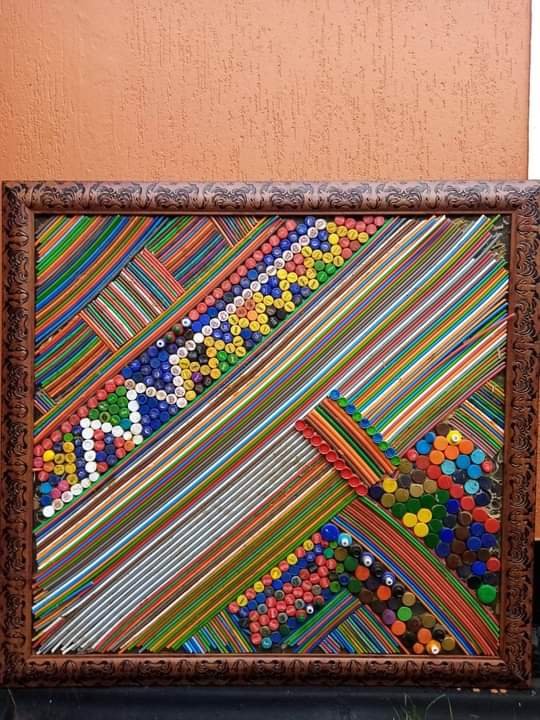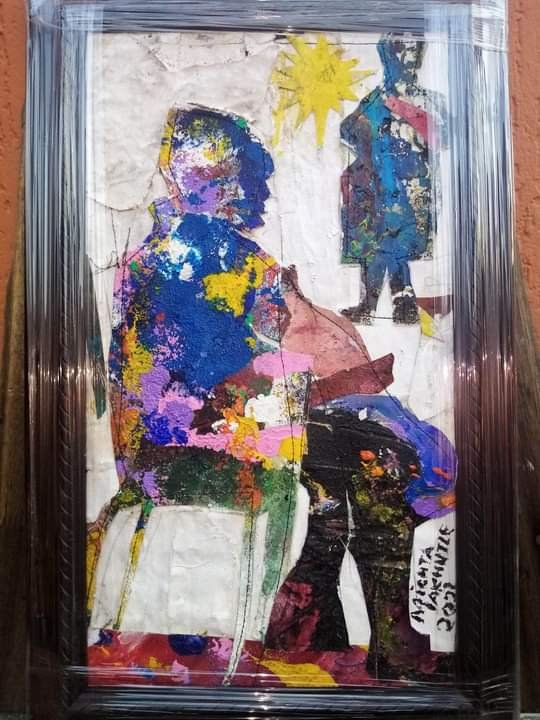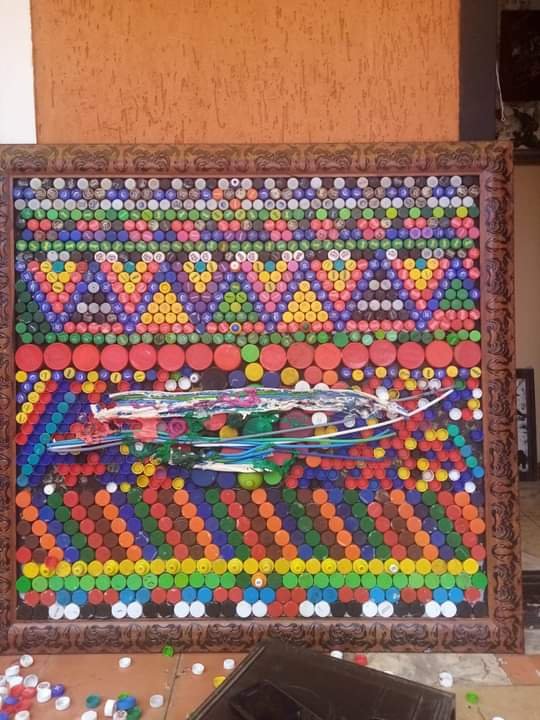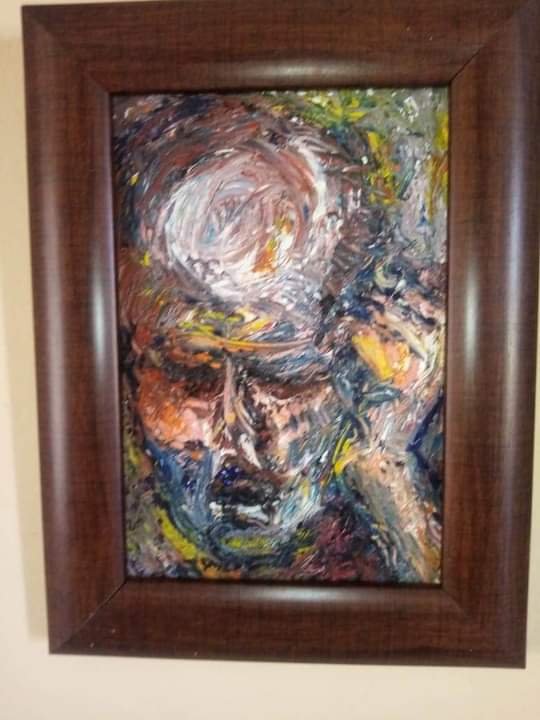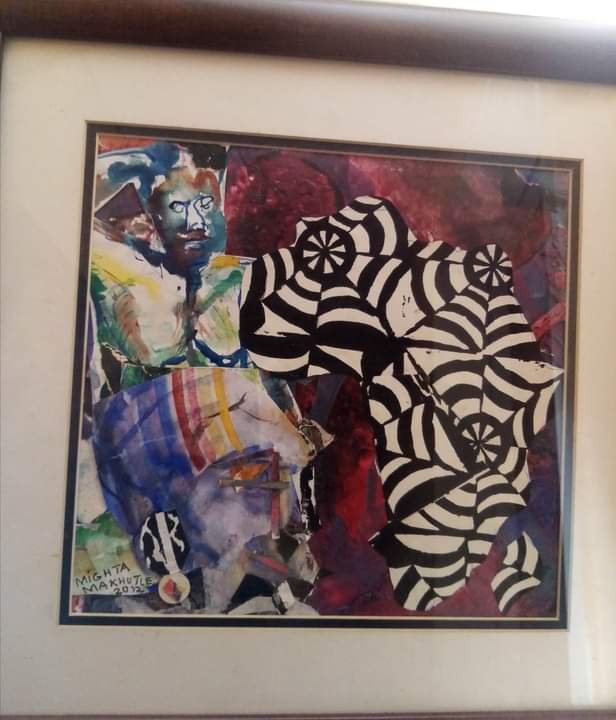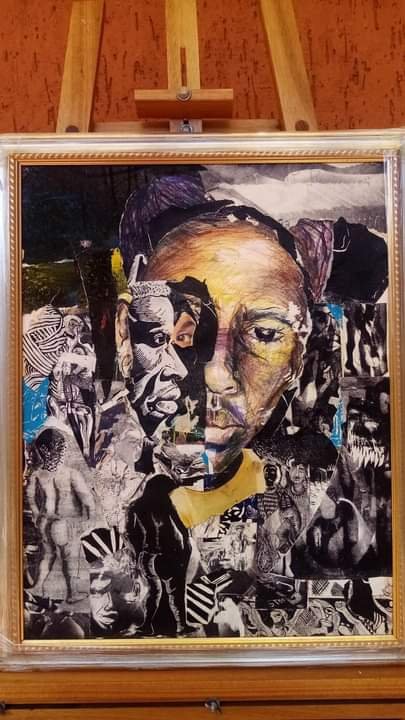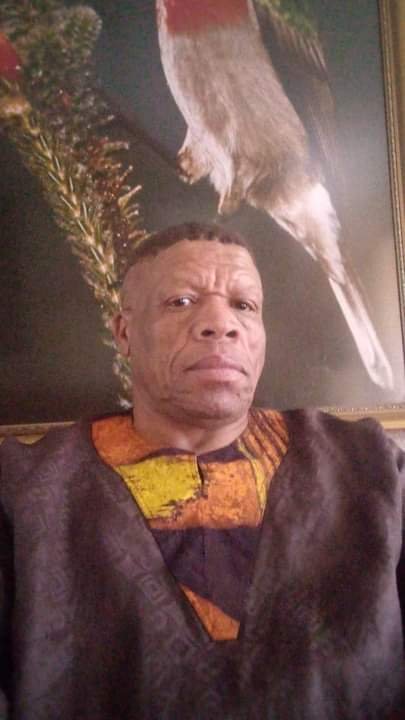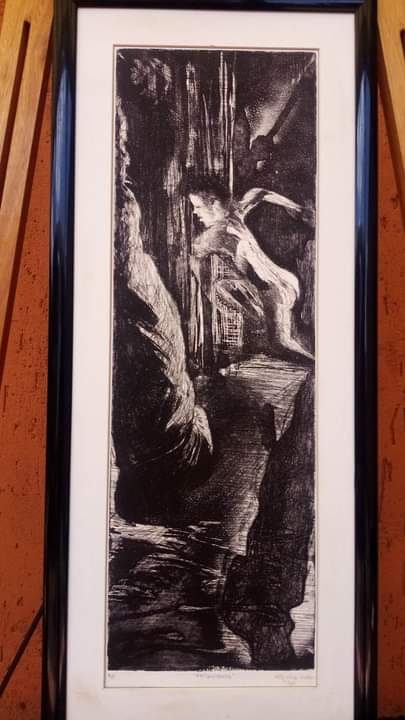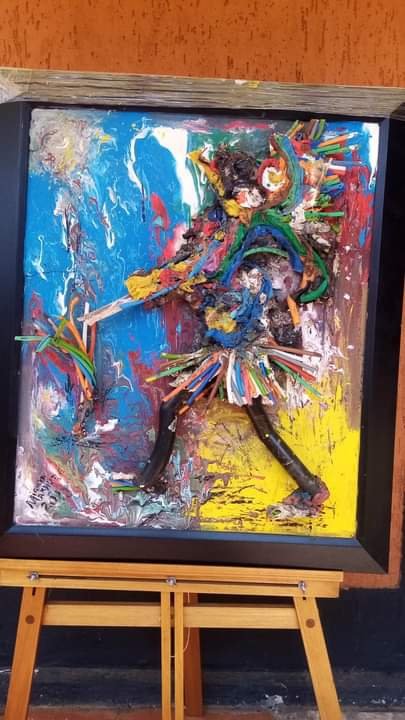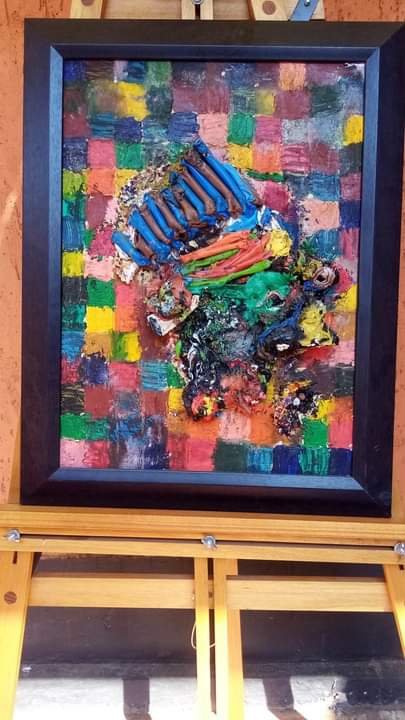Wole Adedoyin interviews Mighta Makhutle: Artists Play A Vital Role In Informing The World About Various Situations Through Their Creative Expression
WA: TELL US MORE ABOUT ART IN YOUR COUNTRY?
MIGHTA: South Africa promotes and supports the development of the Arts sector in schools. Tertiary institutions, organizations as well as individuals. Also, institutions such as The Art Bank yearly acquire different artworks such as paintings, prints, sculptures or multimedia paintings from individuals in all the nine Provinces of South Africa.
WA: HAVE YOU HEARD ABOUT IHRAF BEFORE?
MIGHTA: Yes I have heard about IHRAF before.
WA: HOW ARE ARTISTS USING ART TO PROMOTE HUMAN RIGHTS IN YOUR COUNTRY?
MIGHTA: Artists have been using art as a weapon to inform the outside world about the repressive laws that were imposed by the Apartheid Regime. Posters, placards and T - Shirts bearing anti-apartheid slogans were used by the oppressed masses. The Anti-pass demonstrations by Women in 1956. Soweto Uprisings in 1976 and the demand for the release of political leaders such as Nelson Mandela and other detainees. Every year in March an exhibition by various artists is held at the Constitutional Hill - No 4 or Women's Jail in Johannesburg to mark the commemoration of Human Rights Month.
WA: WHAT THEMES DO YOU PURSUE?
MIGHTA: In my recent artworks I recycle found objects to create meaningful art pieces. Apart from recycling I paint portraits, landscapes, still life or collages etc. I engage in many Themes.
WA: WHAT ART DO YOU MOST IDENTIFY WITH?
MIGHTA: I identify with many art media such as painting, Watercolour, Printmaking as well as Collage.
WA: WHAT ROLE DOES THE ARTIST HAVE IN SOCIETY?
MIGHTA: Art does play a significant role in society because artists are eyes and ears in a sense that they inform the entire world about different situation happening around us. Photographers and journalists are playing a huge role in Israel. Palestine conflict or the Bosnia Russia War. The African continent is also embroiled in many wars caused by tribal conflicts or fighting for minerals.
WA: WHAT’S YOUR FAVOURITE ART WORK?
MIGHTA: My favorite artworks are my Recycled heated plastic pipes and bottle caps glued on board and recycled paper as well as my old Acrylic and Oils paintings which I have reworked.
WA: WHAT JOBS HAVE YOU DONE OTHER THAN BEING AN ARTIST?
MIGHTA: Besides Art In 1999 I was deployed by the City Council to manage the Oppenheimer /Credo Mutwa Cultural Village In Soweto. This is where Makhutle gained significant experience in Heritage matters and was responsible for the restoration of the Credo Mutwa Cultural Village which was destroyed during the Soweto students Uprising in 1976.
In 2007, I was selected to participate in the International Leadership Program by the Embassy of the United States of America from the 11th June to the 6th July. The purpose of the tour was to study and learn about some of the Heritage sites. Galleries and Museums as well as National Parks in Washington DC, South Carolina, Jackson Wyoming and Chicago.
WA: WHY ART?
MIGHTA: Art is important because it captures our history in painting, sculpture, printmaking as well as photography.
WA: WHAT IS AN ARTISTIC OUTLOOK ON LIFE?
MIGHTA: An artistic outlook on life would be to permit all art sectors of various communities to document life in various media.
WA: WHAT MEMORABLE RESPONSES HAVE YOU HAD TO YOUR WORK?
MIGHTA: My memorable experience was when I was offered the chance to tour various cities in the USA. But mostly it was the engagement I had with the late Credo Mutwa when the City of Joburg was engaging in the Restoration of his village. There are so many memorable moments even when the Workers Museum acquired one of my artwork for their permanent collections.
WA: WHAT DO YOU DISLIKE ABOUT THE ART WORLD?
MIGHTA: I dislike when photo journalists are killed in war zones because through them we are informed about the situations taking place in battle fields and also when the Super Power countries turn a blind eye to the suffering of women and children trapped in war zones.
WA: WHAT DO YOU DISLIKE ABOUT YOUR WORK?
MIGHTA: There is nothing I dislike about my art
WA: WHAT DO YOU LIKE ABOUT YOUR WORK?
MIGHTA: I like everything about my art
WA: SHOULD ART BE FUNDED?
MIGHTA: Yes I think art should be funded because Artists do not have the capital to start with their projects be it schools or in communities.
WA: WHAT ROLE DOES ARTS FUNDING HAVE?
MIGHTA: National Arts Council of South Africa, Standard Bank, Nedbank and Art Bank should continue funding different sectors of the Arts as artists are dependent on their skills to put food on the table for their families. So I do agree that Arts should be funded across all sectors.
WA: NAME THREE ARTISTS YOU’D LIKE TO BE COMPARED TO.
MIGHTA: Gerard Sekoto... Vincent Van Gough and Louis Maqhubela
WA: WHAT’S THE BEST PIECE OF ADVICE YOU’VE BEEN GIVEN?
MIGHTA: The best advice I've given was to follow my passion in a career, especially my Art career.
WA: WHAT ARE YOUR FUTURE GOAL?
MIGHTA: My future goal is to see my artworks collected internationally.
WA: YOUR PROFESSIONAL ADVICE TO UPCOMING ARTISTS
MIGHTA: My professional advice for upcoming artists is that there are remarkable and rewarding jobs in the field of the Arts.
Mighta Makhutle, born and raised in Soweto on August 22, 1961, was deeply inspired by his talented mother, who had a knack for design and decoration. In 1979, he honed his artistic skills at Entokozweni Early Learning Center under the tutelage of renowned watercolor artist Durant Sihlali, where he gained expertise in drawing and watercolor painting. Makhutle's artistic repertoire encompasses various themes, including township life and rural scenes. Although he pursued a BA Fine Arts Degree through UNISA while studying part-time at Funda Community Centre - African Institute of Art (AIA) under Charles Sokhaya Nkosi, he eventually became disillusioned with art and did not complete the course. Despite this setback, Makhutle has showcased his dynamic artistic journey through numerous exhibitions across South Africa and collaborated on various commissions with former Funda Center art students. In this interview with Wole Adedoyin, he talks about his art works and his passion for drawing and painting.

